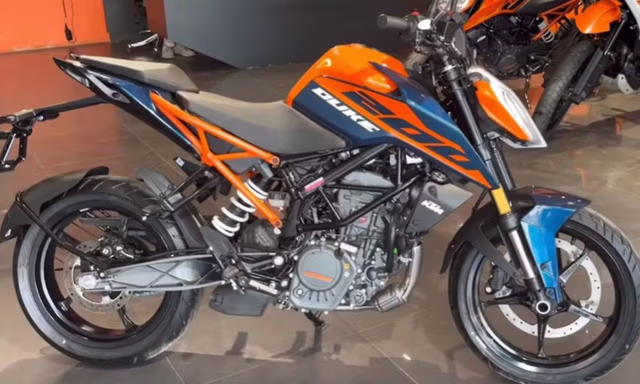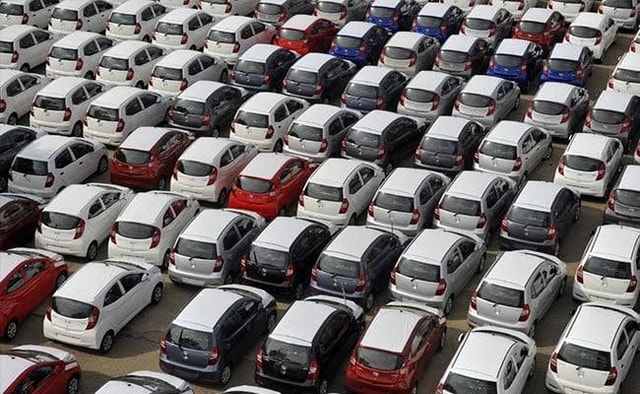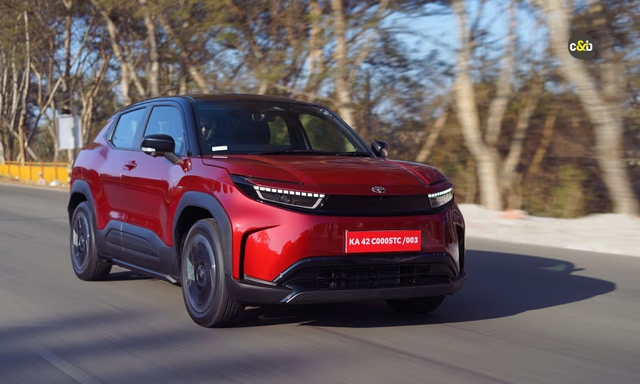How Technology Helps Transport Businesses Become More Sustainable

- The route is clear for EV adoption in the coming decades.
- There are various other practices that can benefit the environment.
- Large-scale adoption of these practices is the need of the hour.
All our lives, we've heard about a difficult future that lies ahead of us due to our rising reliance on fossil fuels and other unsustainable activities. Right now, it's time to accept that that future is already upon us. The changing weather patterns, massive forest fires, frequent typhoons, rising sea levels, and much more are proof that humanity's time on Earth is getting depleted at a much faster pace than normal.

Among the many things we can do about it is overhaul our transport systems to make them more sustainable. Global trade is an absolute necessity so transport businesses cannot be expected to curb their operations. They can, however, switch to sustainable practices that lower the large scale impact that they have on the environment. Here are a few ways in which technology can help transport businesses become more sustainable.
Use green building materials

It´s not just automobile exhaust that creates pollution on earth. The parts of a car, when scrapped could also create soil contamination. Now the outside body is metal and can be reused. And many of the movable parts can also be salvaged. But the interiors of the car, which is mainly plastic parts and seats made of vinyl are often discarded and a bigger source of contamination, since they are non-biodegradable. To combat that, some manufacturers have already started moving towards natural fibres like hemp, kenaf and flax for building the car seats. These fibres are also good alternative to glass fibres and can be used to make natural fibre-reinforced plastic, which can be used for parts like door inserts. The adoption of such methods on a large scale around the world could significantly reduce the impact that transport businesses and automobile industry as a whole has on the environment.
Electric vehicles
Massive strides in the sustainable development of EV batteries have made sure that their large scale adoption in the transport business is finally a conceivable reality. Over the next few decades, it is upon the industry to collectively start transitioning to EVs for their road-based transport operations as well as for governments to adopt electric mobility solutions for public transport on a wide scale. The world's reliance on fossil fuels will surely be significantly reduced by this development.
Fuel cards

The full-scale adoption of EVs is still a distant dream but until then, fuel cards can control the impact of fossil fuels on the environment. They are exactly what they sound like - credit cards used to pay for fuel. What benefits do they have? Firstly, they provide telematics and onboard info about the fleets of transport business, allowing them to observe and optimize their operations easily. The resultant data from these vehicles can be used for reducing fuel wastage and cutting down delivery times. Another benefit of fuel cards is that they lead to paperless accounting, which will also have a positive impact on the environment.
Optimized route planning
GPS is always available at the disposal of transport businesses and they can easily harness its power for saving fuel costs as well as reducing the amount of ground covered by fleet vehicles. They can process a variety of key data points like package deliveries, pickup times, and driver performance to find the optimum path to organizational efficiency.
Adopting the advanced technology that is available at the disposal of transport businesses can lead to a much greener world for future generations.
Latest News
 Jaiveer Mehra | Feb 11, 2026New Toyota Highlander EV Is Brand's First 3-Row Electric SUVEntering its fifth generation, the new Highlander SUV offers a range in excess of 500 km on a full charge1 min read
Jaiveer Mehra | Feb 11, 2026New Toyota Highlander EV Is Brand's First 3-Row Electric SUVEntering its fifth generation, the new Highlander SUV offers a range in excess of 500 km on a full charge1 min read Janak Sorap | Feb 10, 2026KTM 200 Duke Receives Hardware Updates; Priced at Rs 1.94 LakhThe 200 Duke now gets a larger front brake disc, lighter alloy wheels, slimmer fork setup and a fresh new livery.1 min read
Janak Sorap | Feb 10, 2026KTM 200 Duke Receives Hardware Updates; Priced at Rs 1.94 LakhThe 200 Duke now gets a larger front brake disc, lighter alloy wheels, slimmer fork setup and a fresh new livery.1 min read Bilal Firfiray | Feb 10, 2026January 2026 Auto Retail Up 17.61% YoY At 27.22 Lakh Units: FADA ReportFADA reports 17.61% YoY growth in January 2026 auto retail at 27.22 lakh units, driven by strong rural demand, two-wheeler surge and positive dealer outlook for the coming months.3 mins read
Bilal Firfiray | Feb 10, 2026January 2026 Auto Retail Up 17.61% YoY At 27.22 Lakh Units: FADA ReportFADA reports 17.61% YoY growth in January 2026 auto retail at 27.22 lakh units, driven by strong rural demand, two-wheeler surge and positive dealer outlook for the coming months.3 mins read Jafar Rizvi | Feb 10, 2026BYD Atto 3 Evo Unveiled: 443 Bhp AWD EV With Up To 470 KM RangeBYD adds a second motor to the Atto 3, bumping torque to 560 Nm while the FWD standard model switches to RWD.1 min read
Jafar Rizvi | Feb 10, 2026BYD Atto 3 Evo Unveiled: 443 Bhp AWD EV With Up To 470 KM RangeBYD adds a second motor to the Atto 3, bumping torque to 560 Nm while the FWD standard model switches to RWD.1 min read car&bike Team | Feb 10, 2026Mahindra Introduces Remote Service Vans For EVs In DelhiNew service to enable service at doorstep for Mahindra’s range of electric SUVs.1 min read
car&bike Team | Feb 10, 2026Mahindra Introduces Remote Service Vans For EVs In DelhiNew service to enable service at doorstep for Mahindra’s range of electric SUVs.1 min read car&bike Team | Feb 10, 2026CEAT CrossRad Dual-Purpose Tyre Review: Tested Across Highways, Heat and GhatsA cross-country ride from Delhi NCR to Mumbai on my BMW G 310 GS made me appreciate just how critical good rubber is, especially when the journey throws everything at you.5 mins read
car&bike Team | Feb 10, 2026CEAT CrossRad Dual-Purpose Tyre Review: Tested Across Highways, Heat and GhatsA cross-country ride from Delhi NCR to Mumbai on my BMW G 310 GS made me appreciate just how critical good rubber is, especially when the journey throws everything at you.5 mins read
 Girish Karkera | Feb 11, 2026Toyota Ebella EV Review: Compact And Fun-To-Drive With The Promise Of Stress-Free AftersalesNo hiding the fact that it is a clone of the Maruti Suzuki eVitara, but the first all-electric Toyota in India is reasonably well-rounded8 mins read
Girish Karkera | Feb 11, 2026Toyota Ebella EV Review: Compact And Fun-To-Drive With The Promise Of Stress-Free AftersalesNo hiding the fact that it is a clone of the Maruti Suzuki eVitara, but the first all-electric Toyota in India is reasonably well-rounded8 mins read Bilal Firfiray | Feb 10, 2026Tata Punch EV Long Term Review: Small EV With A Big-Hearted PersonalityWith the new Punch EV Facelift just around the corner, we decided to take a look at what it excels at and what could be improved.6 mins read
Bilal Firfiray | Feb 10, 2026Tata Punch EV Long Term Review: Small EV With A Big-Hearted PersonalityWith the new Punch EV Facelift just around the corner, we decided to take a look at what it excels at and what could be improved.6 mins read Bilal Firfiray | Feb 4, 2026Volkswagen Tayron R-Line Review: Sensible Flagship For IndiaVolkswagen has introduced a made-in-India flagship SUV that offers space, comfort, performance, and German driving finesse in a practical three-row package. But is the Tayron R-Line good enough?6 mins read
Bilal Firfiray | Feb 4, 2026Volkswagen Tayron R-Line Review: Sensible Flagship For IndiaVolkswagen has introduced a made-in-India flagship SUV that offers space, comfort, performance, and German driving finesse in a practical three-row package. But is the Tayron R-Line good enough?6 mins read Preetam Bora | Feb 2, 2026TVS NTorq 150 Road Test Review: Bigger, Better & More Efficient!We test the new TVS NTorq 150 out in the real world to get a sense of what it offers in terms of performance, dynamics and fuel economy.7 mins read
Preetam Bora | Feb 2, 2026TVS NTorq 150 Road Test Review: Bigger, Better & More Efficient!We test the new TVS NTorq 150 out in the real world to get a sense of what it offers in terms of performance, dynamics and fuel economy.7 mins read Bilal Firfiray | Jan 21, 2026Tata Punch Facelift Review: New Turbo Engine; Same Old SoulWith the update, the Tata Punch facelift retains its character of being a healthy runabout, which is perfect for Indian roads. But have these changes made it any better?7 mins read
Bilal Firfiray | Jan 21, 2026Tata Punch Facelift Review: New Turbo Engine; Same Old SoulWith the update, the Tata Punch facelift retains its character of being a healthy runabout, which is perfect for Indian roads. But have these changes made it any better?7 mins read




























































































































